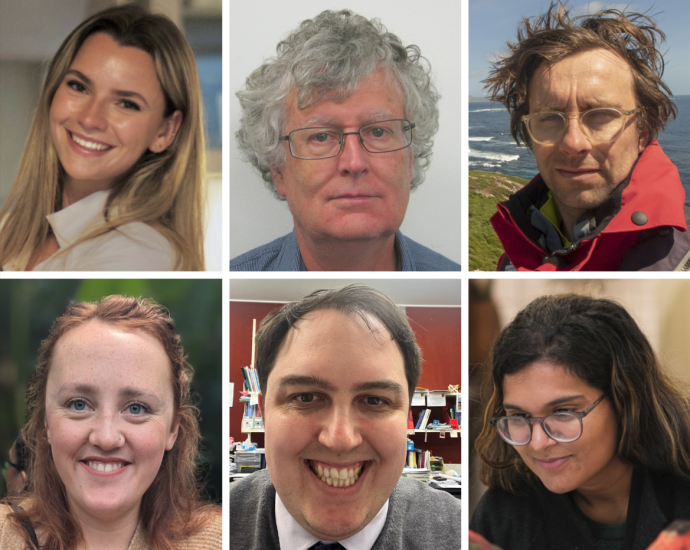News
Published 25 June 2025Academy research awards 2025

The Academy has selected recipients for the 2025 Charles Fleming Senior Scientist Award, Charles Fleming Publishing Award, Hutton Fund Grant, and Skinner Fund Grant.
Structural biologist and chemist Geoff Jameson has won the Charles Fleming Senior Scientist Award (worth up to $10,000).
Emeritus Professor Geoffrey Jameson FRSNZ FNZIC is part of a team of scientists at Massey University, Palmerston North that has made world-leading breakthroughs with the potential to improve the efficacy of treatments for cancer. The Charles Fleming Award will support this research, and enable the team to collaborate more closely with international leaders in this field. Jameson’s team is led by DNA chemist Vyacheslav V Filichev, along with biophysicist Elena Harjes and cell biologist Tracy K Hale. They have designed, synthesised, tested, and structurally characterised two members of a family of enzymes that normally provide a first line of defence against viral pathogens. In many types of cancers, these two enzymes go rogue and mutate the cancer cells’ DNA, leading to treatment-resistance. The team has patented inhibitors to these enzymes and ultimately envisage that drugs preventing mutagenic activity of these enzymes will work alongside front-line cancer therapies to prevent recurrence and metastasis.
Conservation biologist James Russell has won a Charles Fleming Publishing Award (worth up to $8,000).
Professor James Russell, of the University of Auckland, was an MSc student running the projector at the inaugural ‘Island Invasives’ conference in 2001. Since then, this conference series has brought international scholars and practitioners to New Zealand to discuss advances in management of invasive species on islands. Professor Russell is organising the fourth conference in 2026, which will showcase topics such as the ambitious Predator Free New Zealand programme, indigenous leadership in invasive species management, and how to work with communities on inhabited islands. The Charles Fleming Publication Award will support peer-review and publication of the conference papers. Abstracts for the conference are due by 11 July.
Kasper Black has won a Charles Fleming Publishing Award (worth up to $8,000).
Kasper Black of Te Kāreti Tamatāne o Te Whanganui-a-Tara Wellington College has been teaching maths for the past 8 years. Seeing a need to improve the resources available to support his students, he wrote his first mathematics textbook in 2019, and has been working his way through the mathematics curriculum. The Charles Fleming Publication Award will support publication of textbooks for students in Years 11 and 12, and their teachers, to navigate the new curriculum. The books are designed to be high quality and easily accessible for all students.
The Hutton Fund supports research in New Zealand zoology, botany, and geology. Grants from the Hutton Fund have been awarded to Sephena Mann and Ashleigh Adam.
Sephena Mann is an MSc student with the Cetacean Ecology Research Group at Massey University who is investigating adrenal glands in common New Zealand dolphins (Delphinus delphis), and how exposure to heavy metals may negatively impact their health.
Ashleigh Adam is a student at the University of Auckland whose research project “Are we bee-ing supportive?” will investigate the diversity of pollinating insects which visit urban green-spaces, which tend to be exotic plant species known to thrive overseas rather than native species.
The Skinner Fund supports the study of the history, art, culture, physical and social anthropology of Māori and Polynesian peoples. A Grant from the Skinner Fund has been awarded to Patricia Pillay.
Patricia Pillay is a PhD candidate at the University of Auckland, researching the role of birds in the Marquesas Islands through archaeology, ancient DNA, museum collections, cultural knowledge, and historical records. She is investigating critically endangered parrots using archaeological bird remains and specimens from different museums, with long-standing support from local Nuku Hiva communities. This research aims to contribute to our understanding of the taxonomic history of these important birds and their continued cultural and ecological significance in these Polynesian Islands.
